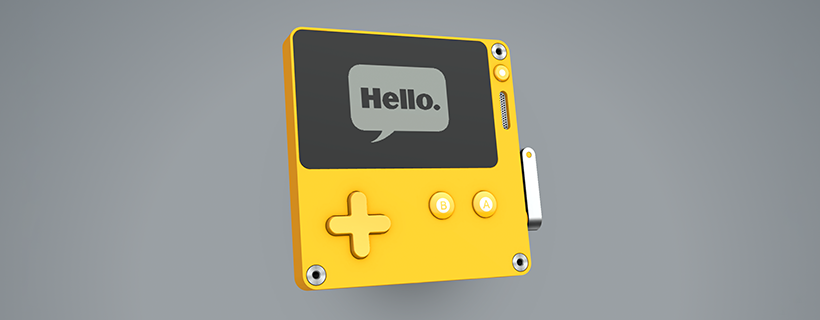iOS software maker Panic just reminded us how fun technology can be. The company unveiled Playdate ($149) a pocket-sized game console that comes with a “season” of 12 games that arrive weekly. And everyone is talking about it.
Playdate is resonating for (at least) three reasons:
- Nostalgia. Last week, I brought my Game Boy Color (c. 1998) into the office. The first thing most people notice is that the Game Boy’s screen has no backlight. Same with Playdate. Its black and white screen and primary controls (d-pad, A+B buttons) recollect a time when gaming was simple and fun. Nostalgia is winning right now — Netflix’s Stranger Things, for example — by tapping into a collective resistance to “better” and “faster.” Playdate will take us back.
- The anti-iPhone. When the App Store first launched, games led the way (Cro-Mag Rally, anyone?). Now, we associate our phones more with mindless scrolling than we do with fun. Teenage Engineering, the Swedish hardware design firm that worked on Playdate, explicitly set out to “break people of their touch psychosis.” Playdate rejects the touchscreen, multi-tasking paradigm to which we’ve become accustomed, instead providing a device dedicated to games. Playdate will give us a break from our phones.
- A gadget to love. Playdate conjures a fresh sense of joy. Something bright, fresh, and new. Despite its retro look and feel, Panic is innovating on both the hardware and the software fronts. The device features a crank — a rotating analog controller — that unlocks differentiated gameplay. And the software is delivered in “seasons,” every twelve weeks, with one game arriving over-the-air each week. Paul Ford’s recent piece for Wired, Why I (Still) Love Tech, points to the fundamental insight here: “Something about the interior life of a computer remains infinitely interesting to me; it’s not romantic, but it is a romance. You flip a bunch of microscopic switches really fast and culture pours out.” Playdate reminds us why we love tech.
Time will tell if Playdate delivers on the hype. Panic says pre-orders will begin later this year and the device will ship in 2020. But Playdate has already struck a cultural chord.
Disclaimer: We actively write about the themes in which we invest or may invest: virtual reality, augmented reality, artificial intelligence, and robotics. From time to time, we may write about companies that are in our portfolio. As managers of the portfolio, we may earn carried interest, management fees or other compensation from such portfolio. Content on this site including opinions on specific themes in technology, market estimates, and estimates and commentary regarding publicly traded or private companies is not intended for use in making any investment decisions and provided solely for informational purposes. We hold no obligation to update any of our projections and the content on this site should not be relied upon. We express no warranties about any estimates or opinions we make.
